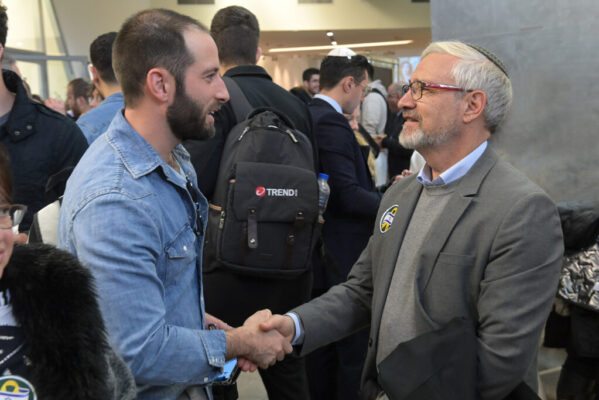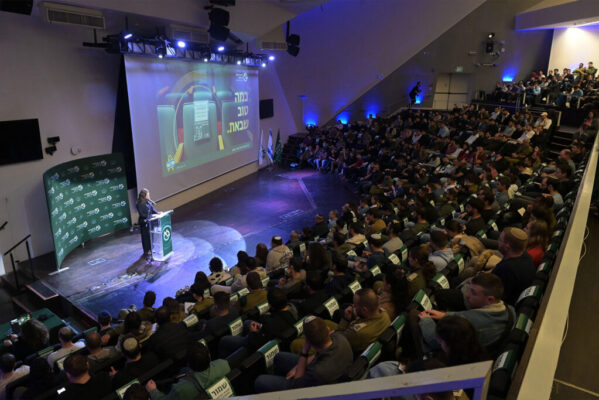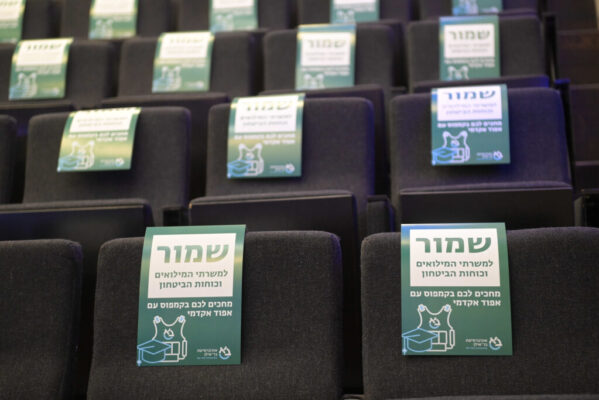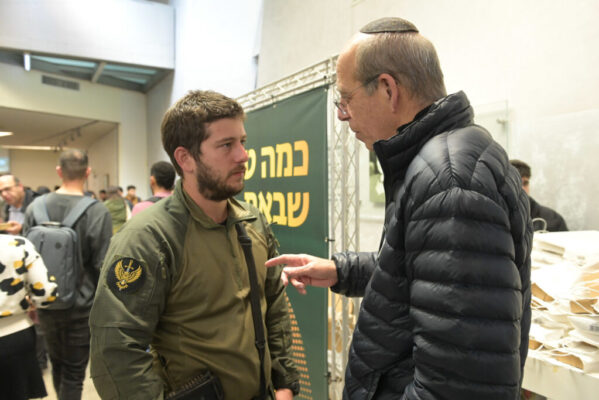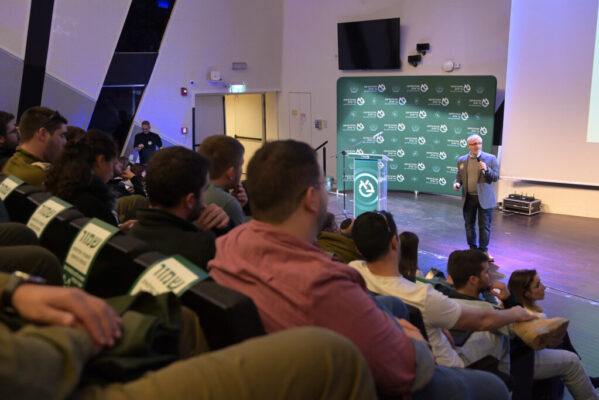Learning In wartime
University War-Related Initiatives
Learning in Wartime
Through the expert recommendations of nine task forces, each addressing a different challenge related to wartime learning and teaching, Bar-Ilan ensured that all students returning from battle—and all community members coping with loss and uncertainty—received both a hero’s welcome back to campus and the academic, emotional, and financial support needed to overcome and succeed.
Learning in Wartime Committees
Academic Calendar
Intergroup Relations
Emotional Support
Teaching & Learning
Grading & Exams
Student Retention
Student Recruitment
Financial Challenges
Resilience
Adjusting Sights
During his weekly meeting with department heads to advise on wartime teaching, Vice Rector Prof. Arie Reich heard a story that underscores the challenges—and opportunities—that Israeli universities now face. “One dean related that a student joined his engineering course via Zoom from inside a tank in the Gaza Strip. He started to ask a question, then excused himself suddenly, and the class heard what sounded like rapid gunfire. Then, he turned the camera back on and continued with his question.” Reich adds, smiling, “If I hadn’t heard this myself from the lecturer, I’d never have believed that hybrid learning could look like this.”

Vice Rector Prof. Arie Reich
“People are amazed by what the University has done for us,” one student wrote to Reich. “You’ve truly lifted our spirits. From all of us combat soldiers at Bar-Ilan, and there are so many—thank you.”
Yet, as Reich knows well, for most of the 25 percent of Bar-Ilan students called up for duty since the start of the war, the real challenge was how to return to their studies—not only from an academic perspective, but also emotionally and financially, as well. To ease their transition, and to build a sensitive and resilient community on campus to support them on their journey, Reich spearheaded Bar-Ilan’s initiative to adapt teaching and learning to wartime.
Nicknamed the “Education War Room,” the initiative saw the establishment of nine challenge-based committees. Within just weeks of October 7th, each committee proposed actionable recommendations for ensuring that soldier-students—and reservist faculty, evacuees, and others affected directly by the war—would have the help they required, whether in keeping up with their studies, despite the known difficulties in concentration, or paying their tuition and living expenses without help from a side job. (“The shortened semester was so intense, it wouldn’t be possible to work as well, which is where we came in with waived payments and assistance from Bar-Ilan’s fundraising campaign,” Reich explains). Another committee worked on alternative bases for grading and exams, and still another on creating a safe and tolerant campus atmosphere. And as feedback from students showed, their efforts were not only effective, but deeply heartwarming, too.
“People are amazed by what the University has done for us,” one student wrote to Reich. “You’ve truly lifted our spirits. From all of us combat soldiers at Bar-Ilan, and there are so many—thank you.”
“How Great to Have You Home”
The day before reservists returned to campus for the second, staggered opening of Bar-Ilan’s academic year, the University held a welcome event to express its gratitude for their service. Titled “How Great to Have You Home,” the 700-strong event included lunch, speeches from University leadership, and much-deserved thank-you gifts.
